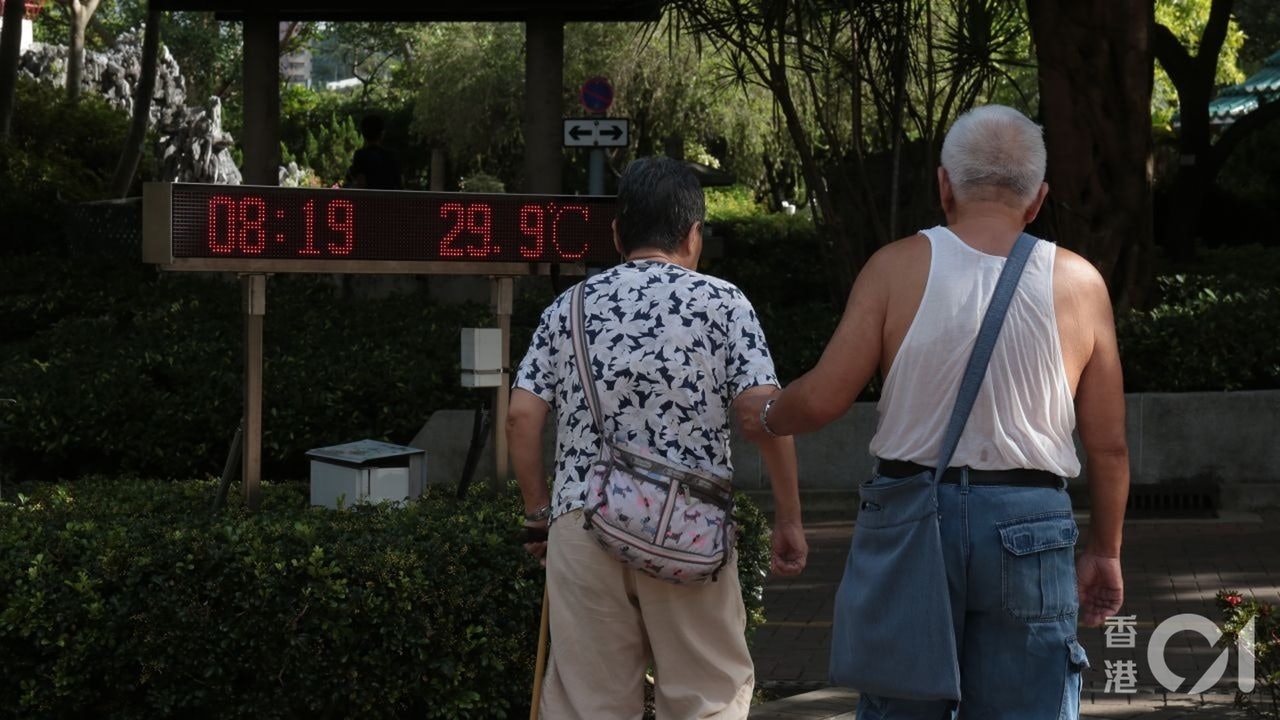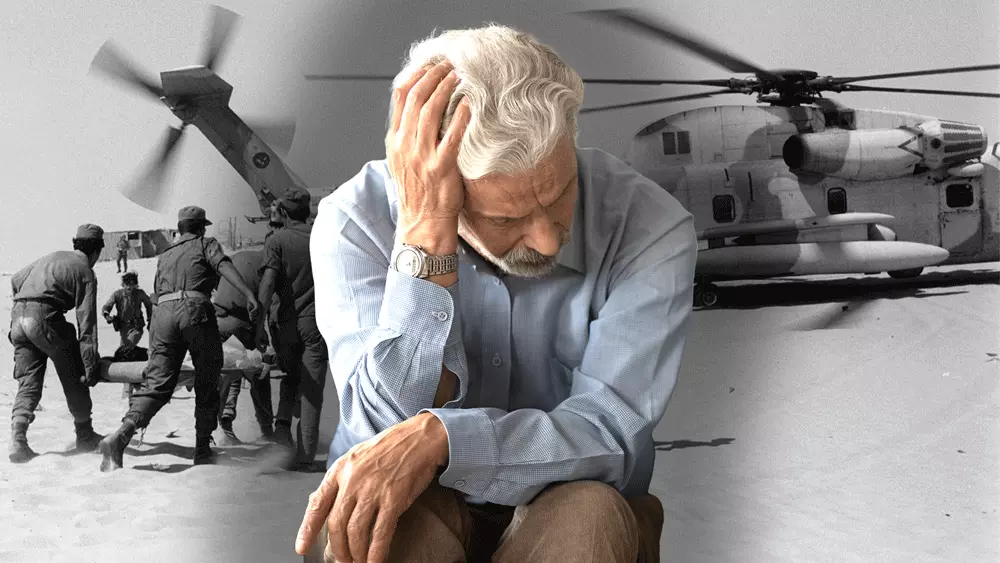The epidemic has lasted for more than two years, and many citizens have suffered from anti-epidemic fatigue, and the mental pressure they have suffered cannot be ignored.
The Hong Kong Polytechnic University study found that more than 10% of the respondents had symptoms of post-traumatic sequelae, including intrusive memories, hyperexcitability and avoidance behaviors. Among them, those who were unemployed, had no personal income, had a lower education level, and watched more than an hour of epidemic news a day. Respondents, more related symptoms.
Some elders shared that during the epidemic, they often do nothing at home, and sometimes do not say a word for several days, and their communication skills have deteriorated. After participating in social activities and receiving corresponding support, the emotional problems improved.
The study found that 12.4% of the respondents had symptoms of post-traumatic stress symptoms (PTSD symptoms). Respondents who were unemployed or had no personal income and had a lower education level were more likely to develop symptoms of post-traumatic stress symptoms.
(file picture)
PolyU received funding of about $1.4 million from the Food and Health Bureau's Medical and Health Research Fund to conduct a hybrid study. From December 2020 to February 2021 (i.e. during the fourth wave of the epidemic), a random telephone survey was conducted among 3,011 Hong Kong people, who also collaborated with 31 In-depth interviews were conducted with each individual aged 65 years or older to identify groups and characteristics that are more likely to develop symptoms of PTSD.
The findings were published in the academic journals BMC Psychiatry and BMC Geriatrics in April this year.
The study found that 12.4% of the respondents had symptoms of post-traumatic stress symptoms (PTSD symptoms). Respondents who were unemployed or had no personal income and had a lower education level were more likely to develop symptoms of post-traumatic stress.
The team pointed out that during the visit, the epidemic in Hong Kong has lasted for more than a year, and the prevalence of symptoms of post-traumatic sequelae in the public is lower than that in the early stage of the epidemic.
The team found that respondents who watched more than an hour of epidemic news a day were more likely to comply with epidemic prevention measures and relevant recommendations, but they also had more severe symptoms of post-traumatic sequelae.
(File photo/Photo by Liao Yanxiong)
The team also found that respondents who watched more than an hour of epidemic news a day were more likely to comply with epidemic prevention measures and related recommendations, but they also had more severe symptoms of post-traumatic sequelae.
Professor Shum Ho-keung, Chair Professor of Neuropsychology and Dean of the Faculty of Medicine and Social Sciences at PolyU, explained that symptoms of post-traumatic sequelae include inadvertently recalling the epidemic situation, feeling irritable and angry, or feeling that the new coronary pneumonia has never happened or is unreal, etc. If you choose to avoid it, it will affect the epidemic prevention policy. .
He also estimated that the fifth wave of the epidemic is more serious, or 30% to 40%, or even more people have related symptoms.
He believes that epidemic news is like a double-edged sword. You should not read too much or too little. You should also pay attention to some news or exaggerated reports, and remind you to confirm the authenticity of the source and the credibility of the media.
Elderly feel helpless and depressed during the epidemic
The team also found that the elderly interviewed believed that the new coronavirus was highly contagious and deadly. Once infected, it would have a greater impact on the elderly’s health, even more serious than that of SARS in 2003. Therefore, most of them avoided going out and exercised during the epidemic, and suspended regular activities. Some people also felt worried, helpless, depressed, and even some elders interviewed expressed frustration.
The research team conducted interviews to understand the attitudes of the elderly towards vaccination against COVID-19. Nearly 40% of the elderly interviewed were skeptical or unwilling to take the vaccine, which was mainly influenced by personal experience and opinions of relatives and friends around them, lack of awareness of vaccines, cultural and peer influences, which led to their disapproval of vaccines. Frail social networks and lack of family support are also the biggest barriers to getting vaccinated.
Nearly 40% of the interviewed elders are skeptical or unwilling to vaccinate, mainly due to personal experience and opinions of relatives and friends around them, lack of awareness of vaccines, cultural and peer influences, and the reasons why they are discouraged from vaccines.
(file picture)
Some elderly people feel trapped at home and feel "waiting for food and waiting for death"
75-year-old Hua Zhen was one of the interviewees. She shared that she used to live a colorful life, but during the epidemic, she often did nothing at home. Sometimes she didn't say a word for several days, her communication skills deteriorated, and she could only communicate with her children and grandchildren online. When we met, I reluctantly pointed out that "every day waiting for the eclipse and waiting for death, I feel so gray." Fortunately, the social distancing measures on Mother's Day have been relaxed, and I can finally set up a dinner party with my family. This is the first time I have participated in the family since the first day of the new year. reunion.
Hua Zhen also pointed out that at first reading the news of the epidemic made you feel unhappy, but later on, Facebook would analyze the information on its own.
During the period of shortage of supplies, masks, cleaning supplies, or standing in line for two or three hours may not be available for purchase. She was also troubled for a time. When she knew that the elderly center and social welfare organization would provide support, she felt relieved and her mood improved.
Lan Jiaying, a registered social worker at the Lutheran Fuxin Garden Elderly Center, added that during the epidemic, many elderly people were depressed because their family members were not allowed to go out, and even developed cognitive impairment. Some elderly people did not go out for two years except for follow-up consultations.
There was a case of a double-elderly family who was diagnosed with a foreign domestic helper. The husband was frail and was bedridden for a long time. The wife did not understand the reporting and isolation procedures.
▼May 8th, the restaurant was full on Mother's Day▼
+6
Remind not to wait for the pressure to explode before dealing with emotions
Cen Ho-keung appealed to the public to pay attention to changes in their physical, emotional, behavioral and social conditions. Once relevant symptoms appear that affect their lives and persist for a period of time, they should seek assistance from professionals or social welfare organizations, and do not wait for the pressure to explode.
Team member and Associate Professor of the Department of Applied Social Sciences of PolyU, Siu Yuen-man, suggested that in addition to providing clearer vaccine information to the elderly, the society should put more resources into the support network for the elderly, especially strengthening the support for the elderly before and after vaccination, so as to relieve their concerns about vaccines. Doubts about vaccinations.
▼5.19 Reopening of listed premises in Chapter 599F▼
+3
DSE|High School Career Suspension, Continuous Candidate Pressure, Stomach Pain, School Helps Out of Emotional Distress Hotline to ease emotional distress Fighting the epidemic for two years and three months, prone to fatigue, housewife and children "fighting with animals", resulting in relapse of emotional illness SEN child has repeatedly been discriminated against by teachers and students








/cloudfront-eu-central-1.images.arcpublishing.com/prisa/RDU33EMH6NBSHNKREMLJH4TGFQ.jpg)
